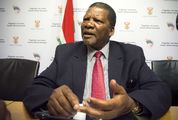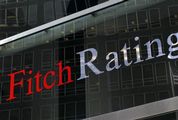THE two great purposes of finance are to channel savings into productive investments and to enable individuals and businesses to manage risks through diversification and insurance.
The financial industry is therefore essential to sustainable development, which represents unprecedented investment and risk challenges on a global scale. When world leaders meet this July in Addis Ababa at the Conference on Financing for Sustainable Development, the financial industry should be ready to offer practical and global-scale financing solutions to the challenges of economic growth, poverty reduction and environmental sustainability.
This year is the Year of Sustainable Development. In three back-to-back global summits, starting with the financial summit in Addis Ababa, then the adoption of Sustainable Development Goals at the United Nations (UN) in September, and finally an agreement on climate change in Paris in December, the 193 governments of the UN are attempting an unprecedented feat: to change the course of global economic development and finance to ensure that global growth and poverty reduction can continue in a safe, protected natural environment.
It is going to be a close call. The world’s economic system, despite all of the huge bumps in the road, is delivering aggregate growth of between 3% and 4% a year, leading to a doubling of the world economy every generation. Yet the world economic system is not delivering sustainable growth, in two basic senses. In many parts of the world, the growth has been deeply lopsided in favour of the rich; and the growth has been environmentally destructive, indeed nothing short of life-threatening when viewed on a century-long time scale rather than by quarterly reports or a two-year election cycle.
Climate change is the greatest of these environmental threats, but by far not the only one. On the present trajectory of fossil fuel use, global warming is on a path to reach 4°C-6°C above the preindustrial level, a rise in temperature that would be catastrophic for food production, human health, biodiversity, extreme storms and rising sea levels, indeed for survival in many parts of the world. Governments have agreed to keep warming below 2°C but have yet to take decisive action towards a low-carbon energy system.
Here is where finance should come in: to support the global transition to sustainable growth and away from the present patterns of highly unequal and environmentally destructive growth.
Effective financial markets should convey accurate long-term information to savers and investors so that businesses, pension funds, insurance pools, sovereign wealth funds and other savers put their money into investments with solid long-term payoffs, and protect their savings from financial calamities such as entire low-lying coastal regions or dry-land farm regions unable to cope with climate change.
Effective financial markets will channel far more global savings across borders from high-income countries with relatively low long-term growth prospects to low-income regions with relatively high growth prospects based on new opportunities to leapfrog development with smart, information-based infrastructure. Just a decade ago, hundreds of millions of African rural villagers lived outside of the flow of global information. Now, with the rapid spread of broadband, the once isolated villages are part of online banking, online transport services, information and communication technology-supported health and education, and broadband-supported agribusinesses.
Yet to seize the benefits of the new technologies at scale, and to avoid the threats of investments that aggravate rather than solve the cascading environmental crises, the finance industry will have to keep its eye on the ball, understanding how the new UN Sustainable Development Goals will reshape the investment landscape. We need to think beyond the replication of yesterday’s business ideas. In the investment world, the time has come to grapple with the concept of true long-term investing. How can we marshal the power of institutionally mobilised capital and its considerable capacity to evaluate investment opportunities to secure a sustainable future for humanity?
We know that enormous public and private investment is required for the transition towards a low-carbon economy, to win the global fight against poverty and disease, and to secure the provision of quality education and physical infrastructure across the world.
In short, today’s savvy investors, and the financial industry as a whole, need to look ahead, even beyond today’s market prices and policies, to the market prices and policies of the future. We may not yet have a global price on carbon to shift energy investments away from coal, oil and gas and towards wind, solar and hydropower, but we know that such a price on carbon is coming soon, in order to keep warming below the 2°C limit. As stewards of long-term capital on behalf of this generation, our generation cannot ignore the welfare of future generations. We need to come up with practical ways to finance and encourage the required shift.
We believe that financial industry leaders, also urged on by civil society, governments, scientists and others, want the finance industry to play its vital role in sustainable development. We are therefore asking finance leaders to contribute actively to the unique opportunity this year presents. The leaders of this generation can choose to be remembered for the banking crisis over which they presided or for their creative and resourceful efforts to mobilise the financial markets to encourage long-term sustainability. We encourage finance to:
• Work with governments to establish an updated global framework for investing and appropriate incentives for institutionally mobilised capital to take on these challenges;
• Continue to advocate for the globalisation of finance — thus enhancing the ability to allocate money from capital-rich parts of the world to the poor, capital-scarce parts where local finance is in short supply;
• Develop local capital markets to form part of the global system while facilitating capital formation at local level to protect countries from the vagaries of global sentiment;
• Increase responsible investing through ever higher standards of stewardship for investors to ensure that investee companies operate in a more sustainable way;
• Work on the new framework for global infrastructure investment that is practical and which disciplines the wastage too often associated with politically inspired "white elephants" or environmentally destructive projects; and
• Involve citizens (the savers) in the journey to a fairer and more sustainable global economy.
Since the industrial revolution, finance has been a powerful enabler of progress. Now is the time to harness the power of financial markets to invest in the human skills, infrastructure and sustainable technologies that can end poverty, spread prosperity and protect the planet.
• Du Toit is CEO of Investec Asset Management. Sachs is the Quetelet Professor of Sustainable Development at Columbia’s School of International and Public Affairs and a professor of health policy and management at Columbia’s School of Public Health.



























Post a comment